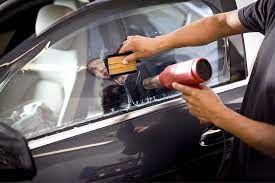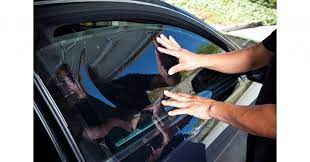Unveiling the Benefits and Guidelines of Window Tinting
In the realm of automotive customization, window tinting brooklyn ny stands out as a popular and versatile choice. Beyond enhancing the aesthetics of vehicles, tinted windows offer a plethora of benefits ranging from increased privacy to protection against UV rays. However, to fully reap the advantages of window tinting while adhering to legal regulations, it’s crucial to understand the process and guidelines associated with it.
Understanding Window Tinting:
Window tinting involves applying a thin film to the interior of vehicle windows. This film is typically made from polyester and can vary in thickness and shading. It’s designed to block or reduce the amount of sunlight that enters the car, providing various functional and aesthetic benefits.
Benefits of Window Tinting:
- UV Protection: One of the primary benefits of window tinting is its ability to block harmful ultraviolet (UV) rays. Excessive exposure to UV radiation can lead to skin damage and increase the risk of skin cancer. Tinted windows act as a barrier, reducing UV penetration and safeguarding occupants inside the vehicle.
- Heat Reduction: Tinted windows can significantly decrease the amount of heat that builds up inside a vehicle, especially during hot summer months. By rejecting solar heat, window tinting helps maintain a more comfortable interior temperature, reducing the reliance on air conditioning and improving fuel efficiency.
- Glare Reduction: Glare from sunlight or headlights can impair visibility and cause eye strain, particularly during dawn or dusk. Tinted windows minimize glare, enhancing driving comfort and safety by providing clearer visibility.
- Privacy and Security: Tinted windows offer enhanced privacy by limiting the visibility of the vehicle’s interior from outside. This can deter potential thieves who might otherwise be tempted by valuable items left inside the car. Additionally, in the event of an accident, window tinting helps hold shattered glass together, reducing the risk of injury from flying debris.
- Interior Protection: Prolonged exposure to sunlight can cause the interior surfaces of a vehicle, such as the dashboard and upholstery, to fade and deteriorate over time. Window tinting helps preserve the condition of these surfaces by blocking UV rays and reducing heat absorption.
Guidelines and Regulations:
While window tinting offers numerous advantages, it’s essential to adhere to local regulations governing tint darkness and reflectivity to avoid legal consequences. These regulations vary from region to region and typically specify the permissible Visible Light Transmission (VLT) percentage for different windows of the vehicle. VLT refers to the amount of visible light that can pass through the tinted windows. Violating these regulations may result in fines or mandatory removal of the tint.
Conclusion:
Window tinting is more than just a cosmetic enhancement for vehicles; it’s a practical investment that provides a range of benefits, including UV protection, heat reduction, glare reduction, enhanced privacy, and interior protection. By understanding the advantages and guidelines associated with window tinting, car owners can make informed decisions to improve comfort, safety, and longevity while cruising down the road.


